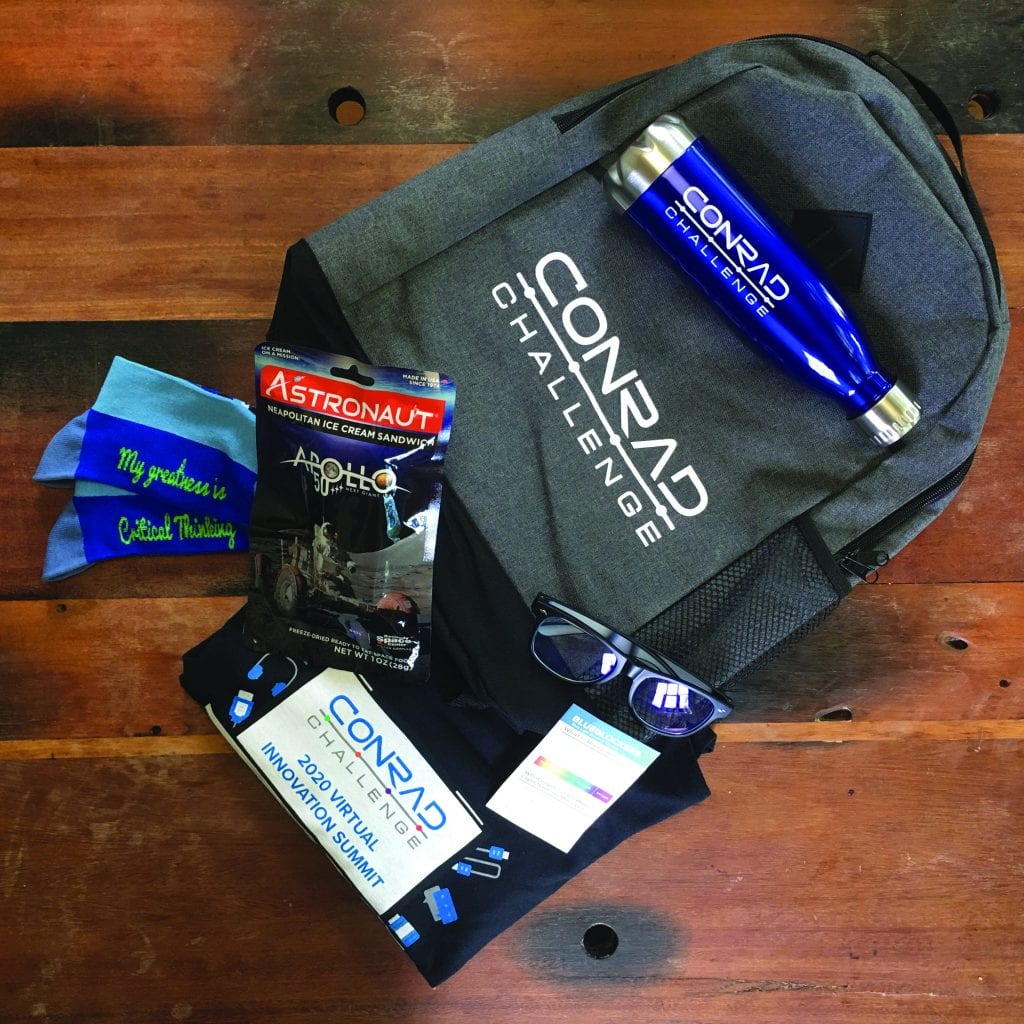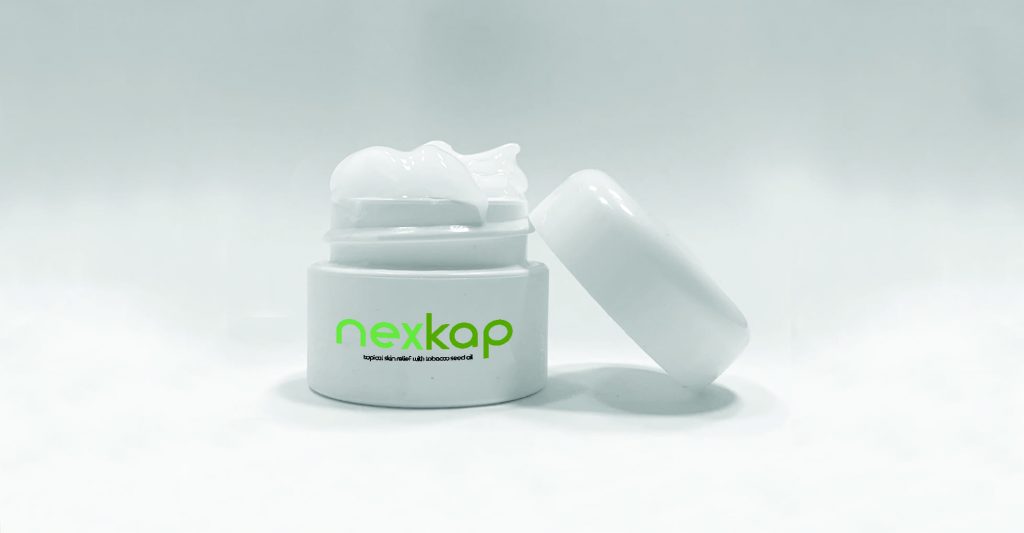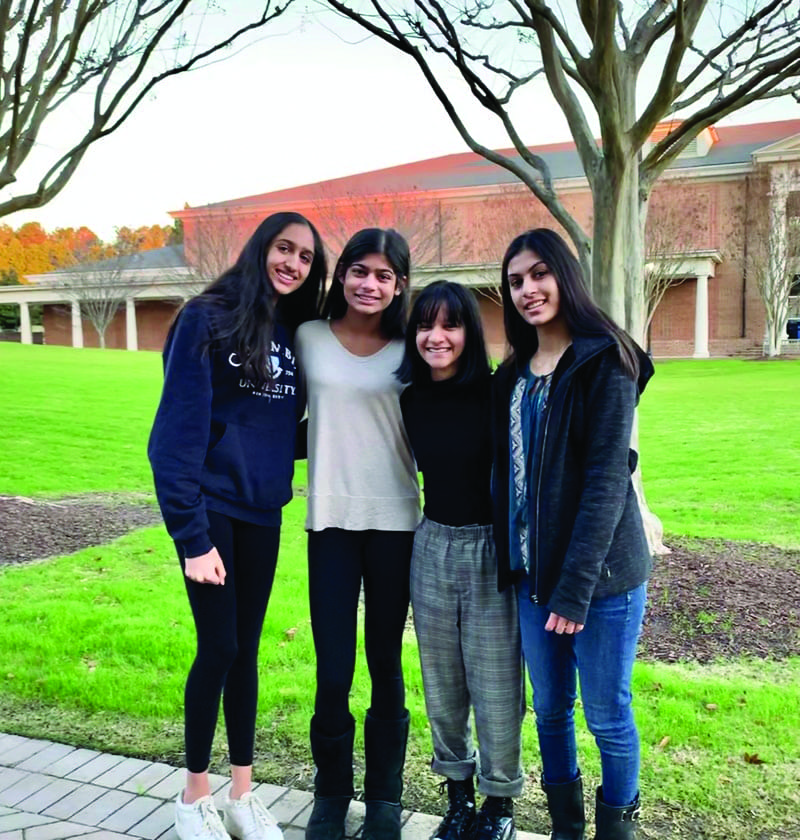What do you get when you combine design thinking, tenacity, resiliency, and agile problem-solving with the pursuit of innovation in the name of social change and global good? For a group of enterprising CA students, an eye-opening and award-winning foray into one of the most prestigious youth entrepreneurship challenges in the world: the international Conrad Challenge.
Last fall, rising seniors Sarah George, Ritvik Nalamothu, and Clay Thornton approached the Center for Community Engagement with a big idea to support budding entrepreneurs. Their goal? To launch a club that nurtured student innovation and business acumen by facilitating participation in global entrepreneurship challenges.
A natural extension of CA’s existing Entrepreneurship Initiative, the students’ proposed Startup Challenge Club earned a quick approval, with Entrepreneurship Coordinator and English teacher Palmer Seeley signing on as faculty mentor. The nascent club would go on to attract an intrepid group of 18 Upper School students who immediately set their sights on the prestigious international Conrad Challenge as their target competition.
While ambitions and excitement were high, as first-time competitors entering alongside a field of over 300 teams the world over, many seasoned veterans, no one was quite certain what to expect for CA’s inaugural teams. But, after a tumultuous year of trial and error, ups and downs, and virtual pivots, a fantastic display of CA ingenuity and collaboration brought impressive results: one finalist team and one alternate finalist team, one well-deserved award, one patent pending, three student-led burgeoning businesses, and countless lessons learned.
Rising to the Challenge
Sponsored by the Conrad Foundation, the Conrad Challenge is a prestigious annual, multi-phase, global innovation and entrepreneurship competition for students aged 13-18. Named in honor of Apollo 12 commander, astronaut Pete Conrad, the Challenge asks students to work in collaborative teams to create products and services that address pressing global and local challenges.
According to Seeley, “The beauty of the Conrad Challenge is that its whole mission is to empower students to become entrepreneurial problem-solvers—to design the future with a hands-on approach that addresses challenging scientific and societal issues. Like CA’s on-campus entrepreneurship initiatives, such as the Drink Cart Challenge and forthcoming Café and Student Store, the key to success is utilizing creativity, critical thinking, and thoughtful problem-solving skills.”

Challenge teams tackle any number of issues across a series of established industry categories, including Aerospace and Aviation, Cyber-Technology and Security, Energy and Environment, Health and Nutrition, Re-purposing Farmlands and Tobacco Crops, Eliminating and Reducing Teen Vaping, and Transforming Education through Technology.
Innovation is the name of the game. Teams are encouraged to think outside of the traditional box—the Challenge touts its “no-box toolbox” approach—and to start with a “clean sheet approach.” In other words: the sky’s the limit, and no solution is off the table (provided, of course, that you’ve got a well-researched pitch to back it up).
The first phase of the Challenge requires teams to craft just that: a detailed proposal outlining the issue they seek to address and a proposed solution. Successful pitches offer a broader situational analysis of the larger market landscape, providing insights into anticipated challenges, strategies to overcome them, and how the idea is unique.
For Mila Patel ’21, Natasha Sachar ’22, Sonia Shah ’22, and Ella Gupta ’23—the driving force behind Team Nexkap, it was a daunting first step.
Initially overwhelmed by the expansive list and blank slate model, Team Nexkap opted to cast a wide net of research across all the industry divisions. Ultimately, they settled on the Repurposing Farmlands and Tobacco Crops category, which had personal resonance for the native North Carolinians.
Rather than simply falling back on an existing or preconceived product idea from the start, they took a problem-first approach and set out to develop a nuanced understanding of the market and challenges at hand.
“Tobacco is North Carolina’s longtime cash crop, but health concerns and changes to the tobacco economy have put tobacco farmers
in dire straits,” explain the four members
of Nexkap. “USDA data shows a greater-than
50% decline in the tobacco economy; a decline which disproportionately affects small family farms and a considerable number of farmers of color.”
THE BEAUTY OF THE CONRAD CHALLENGE IS THAT ITS WHOLE MISSION IS TO EMPOWER STUDENTS TO BECOME ENTREPRENEURIAL PROBLEM-SOLVERS—TO DESIGN THE FUTURE WITH A HANDS-ON APPROACH THAT ADDRESSES CHALLENGING SCIENTIFIC AND SOCIETAL ISSUES.”
— PALMER SEELEY
ENTREPRENEURSHIP COORDINATOR/ENGLISH TEACHER
With a clearer understanding of the problem they were solving for, the team shifted focus to investigate possible solutions. After a few weeks of research, a breakthrough arrived when Patel—Nexkap’s CEO—discovered an article about tobacco seed oil while researching old wives’ tales. It suggested that tobacco plants could reduce inflammation, heal wounds, and soothe skin irritation.
Intrigued, the team began investigating the biology of the tobacco plant. They soon discovered that the oil from a tobacco plant seed contains a large amount of linoleic acid, a compound recently approved by the FDA to treat common skin issues, such as eczema, hypopigmentation, blisters, sunburns, and acne.
A product idea began to form.
“We started to see how an all-natural, tobacco seed-based cream was unique in the skincare market and how it could solve a significant economic problem in our community,” says Shah. “Bringing to market a cream with a high concentration of linoleic acid will create a new export opportunity for tobacco farmers and will ultimately reinvigorate tobacco communities.”
Encouraged, the team turned to consider their audience, only to realize that their product could also address an inequity in
the marketplace. As women of color, they were familiar with the limited number of products available to treat the unique skincare needs of darker-complected
people, who are more likely to experience acne and hypopigmentation and react adversely to corticosteroids.
Thus, Nexkap—a universal body cream developed with the skincare needs of teenagers of all skin tones in mind—was born.
“By intertwining the cosmetic and tobacco industries, we felt that Nexkap encompassed our backgrounds,” says Patel. “We chose the name Nexkap—derived from the Greek word for tobacco, καπνός—because we see this as the next chapter for the tobacco industry.”
Meanwhile, their peer teams were similarly making progress. Setting their eyes on the Health & Nutrition category, Team Boxide focused in on a solution for on-site surgical equipment sterilization in remote parts of the world. Team CannStrips looked to reduce the lethality of cannabis vaping with the development of a pH-like strip that users could use to test their bootleg electric cannabis cartridges for Vitamin E oil, a deadly inhalant. Team WrappedUp, set out to transform sexual education with a mobile app that coupled sex-ed curriculum with geo-location, providing users with information on where to find condoms near their location.

From idea to invention
Ultimately, first-round judges advanced all four CA teams to the next round. Invited to submit a strategic business plan, the teams turned their attention to fleshing out their ideas to determine what it would take to bring their product to market.
Initially, Nexkap encountered struggles that often come with blazing a new trail. Incorporating tobacco seed oil in cosmetics was a novel idea in skincare, requiring the team to delve into complex scientific concepts to better understand the scope of their product concept and its feasibility.
“The unconventionality of our product is what made it unique,” says Patel, “but it also forced our team to go through a seemingly eternal discovery process— a process that at times made us feel as if we were writing a research paper.”
In the end, after numerous trips back to the drawing board and countless revisions, their efforts paid off. In February, the team received a short email carrying a big message: they had been selected as Conrad Challenge finalists, alongside 36 teams from Australia, India, Nigeria, the Philippines, Singapore, the United Kingdom, Vietnam, and across the United States.
“It was surreal,” agrees Sachar and Patel. “At that moment, the significance of the Challenge started to sink in. Nexkap had moved from being an idea to an invention.”
Team Boxide—comprised of Jay Sagrolikar ’21, Vibhav Nandagiri ’21, Kathryn Chao ’21, Paul Ibrahim ’21, and SCC Co-President Nalamothu—also received good news. They were named alternate finalists in the Health & Nutrition category.
As part of their preparation for the third and final round, Nexkap started provisional patent applications to the U.S. Patent and Trademark Office (USPTO). The Center for Community Engagement collaborated with the NCCU Law School Intellectual Property Law Clinic to provide guidance and feedback to the team as they prepared their patent applications. Nexkap is officially patent-pending, which Gupta describes as “a unique opportunity that was extremely cool.”
Going virtual
As finalists, the teams were scheduled to present their final pitches in April at the Conrad Innovation Summit at NASA’s Kennedy Space Center at Cape Canaveral, Florida. Unfortunately, as they prepared for the intense Q&A sessions that awaited, the coronavirus began sweeping across the United States. The Summit was delayed until the end of May, shifting from an in-person meeting to virtual sessions.
“Although this was a set-back, our team adapted,” says Sachar. “We learned a lot about the patent process and how to produce a persuasive, virtual marketing pitch,” notes Shah. Their pitch was so persuasive, in fact, that they won their category’s Power Pitch Award—presented to the team that makes the best presentation.
Award aside, and despite the less than ideal conditions, the opportunity to connect virtually with fellow entrepreneurial students, industry experts, and forward-thinking and experienced mentors from across the globe proved invaluable for Team Nexkap.
“It brought the exhilaration and creativity we
had longed for,” explains Patel. “With our pitch video, an executive summary, and a patent, we were bringing our product to a small part of the world. After meeting virtually with lawyers and CEO’s, I
no longer felt like just a student, but truly an
aspiring entrepreneur.”
“The opportunity to meet other students from all around the world was amazing,” adds Gupta. “I now have connections in the United Kingdom, Australia, India, and other states, from California to Virginia. Talking to, and learning about, my fellow finalists was extremely inspiring. I wouldn’t trade my Conrad experience for anything.”
Team Nexkap isn’t resting on their laurels. As Gupta explains, “we are in the process of finalizing our formulation and establishing test groups for our product,” with Shah adding, “I’m excited to see what the future of Nexkap looks like.”
Similarly, the future looks bright for the other members of the Startup Challenge Club. Team Boxide continues to develop a business model for their plan to expand access to on-site surgical equipment sterilization in remote parts of the world. While Team WrappedUp, encouraged by feedback from Conrad Challenge judges, sees potential for a considerably expanded initial market, given the changes wrought by COVID-19 and increased demand for cost-effective, digital education opportunities.
Preview in new tab(opens in a new tab)
ORGANIZED FOR STUDENTS, BY STUDENTS
“When I look back on what has grown out of that pitch to start a new student club and see where it has taken not only Nexkap, but all the CA students interested in entrepreneurship, I’m amazed, but not surprised,” reflects Entrepreneurship Coordinator and Student Challenge Club coach Palmer Seeley.
“Giving students the opportunities to explore what challenges are out there and the guidance to help them discover new paths and solutions is at the heart of what we do. And it’s exciting to see how the connections they’ve made and the fresh perspectives they provide have sparked new ideas and energy.”
Indeed, student-driven learning opportunities have always been a hallmark of the CA experience. CA’s extensive and diverse roster of student clubs—all the product of student interest, advocacy, and leadership—is an integral part of campus life, offering ample opportunities for students to connect, pursue passions, broaden horizons, explore interests, build relationships, and take calculated risks in the name of learning.
In 2019-2020, Cary Academy offered more than 40 clubs in the Middle School and over 70 clubs in the Upper School. From intersectional affinity groups such as the Gender and Sexuality Alliance to the Christian Affinity Group, to step team, to Science Olympiad, and many in between, student clubs are all made possible by financial support from the CA Fund, which picks up where tuition dollars leave off.
In Middle School clubs, a student might opt to produce the daily CAST News broadcast; strengthen community in Student Leadership; get moving in Just Dance; learn All About Animals; stay flexible and fit with Yogalates; enjoy Tea Time; explore the Wizarding World of Harry Potter, tend the Community Garden; or make a green difference through Upcycling—just to name a few.
Upper School students might get prepared with emergency first responders as members of the Community Emergency Response Team; explore culture and imagination in World Building; promote authentic learning by Shifting the Educational Paradigm; ensure that Charger athletes benefit from the X-Factor of fan support; Share the Music with members of the on- and off-campus communities; take the pulse of campus with The Campitor; and serve the community in meaningful ways through Delta Service Club.

